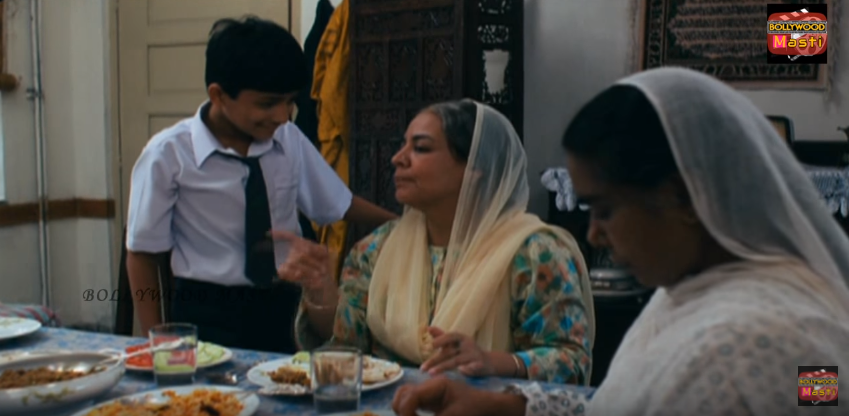ROMAN HOLIDAY
ROMAN HOLIDAY : MOVIE REVIEW
4 STARS OUT OF 5 ( EXCELLENT )
DIRECTOR : WILLIAM WYLER
CAST : AUDREY HEPBURN, GREGORY PECK
ENGLISH, 1953
It’s endearingly enchanting to watch a film which wafts on the ability, not of the director, hero, writer, cinematographer or editor but on that of the heroine. Twenty-three year young Audrey Hepburn is the soul of winsomeness as a princess who escapes her suffocating tour schedule in Rome to enjoy a carefree holiday, accompanied by a journalist who thinks he’s got the scoop of the year. The film is not great on second viewing, but the first show, with a star spinning her lovely aura, becomes a most pleasant breeze of yesteryear Hollywood.
The journalist Joe Bradley is played by Gregory Peck with a moving mix of gallantry, concern and a whisper of a smile, as his self-interest gradually segues into something else. It is easy, in the dells of mixed memory, to think that Cary Grant played this role ( he declined it ). Both men have the same soft handsome face and slim figure of an unthreatening metrosexual but Peck has a fleck of toughness in his face that serves as a tidy foil for the nascent beauty of his lady here.
Other women may ooze seduction but Hepburn here weaves a different spell, her persona gently aglow with a pulchritudinous innocence that is ravishing in its own way. The sculpted angle of her jawbone is slender as that of someone barely into adolescence, but her emoting and composure has adult assuredness. She is utterly credible as she howls and collapses in her bed when her attendant reels out a mind-numbing list of royal itinerary for the next day. Resolving to escape this crazy robotic tedium, Princess Ann flies out of her castle at night.
It is 1953 Rome chaperoned by mainstream Hollywood , and obviously not 2005’s Germany-Luxembourg so she is spared the fate of ‘Your Name Is Justine’ . A tidily made bed is declined to her by the man who finds and reluctantly agrees to look after her but the night in a smaller sleeper berth in the same studio apartment, eventually opens up the day she’ll get to spread her unburdened civilian wings. That morning, Joe gets stunning tidings that he’s the keeper of a crown incumbent. Along with his photographer friend, he finagles a lucrative contract to snag sneaky paparazzi pictures of the unsuspecting princess painting Rome red.
Writers Trumbo, Hunter and Dighton and director Wyler do a commendably convincing job of setting up an unusual day. Princess Ann with her independent spirit politely elects to part company with her overnight host, having earlier confused his entire living quarters to be the inside of an elevator. Outside, she innocently asks him for money as she has none, and Joe obliges, uncomfortable aware of the gaze of the landlord who may think that a lady of the night is being remunerated. Out on the Roman streets, Princess Ann enjoys the sights while unwittingly showing the financial management skills of Caligula. A drastic haircut is a cunning investment no doubt, but an ice cream later, she’s blithely penniless and might have endured the fate of Ladri di biciclette were it not for the casually fortuitous re-entry of Joe.
‘ Oh Hi Mr.Bradley ‘ , Princess Ann politely greets him , showing no annoyance whatsoever of meeting the man she had left earlier, as she now realizes that her only acquaintance in town would be crucial to getting around the place for her holiday. So begins their sight-seeing sabbath, complete with the very popular image of them riding the roads in a Vespa Farobasso scooter.
Especially on the second viewing ( my first viewing was more than a decade earlier) their sight-seeing adventures lose some nostalgic gloss. Here especially, the writing, direction, and cinematography could have been more imaginative and grander. Colour pictures in 1953 were comfortably in vogue, but the decision to shoot Roman Holiday in good ol’ monochrome was an apt one, gives how black-‘n’-white gels so well with the idea of remembrance. While there are some undoubtedly good touristy shots, this aspect thins out towards the latter part. The best scene in this stretch is the one at the monster’s maw, where Peck fakes a moment of terror, and Hepburn amps it up by jumping in with uproarious gusto. Her scream is a delightful conflation of half-terrorized, half-regaled outcry as she then scrams with a sly chuckle.
The ending, both outside the palace and inside, is the best part of the picture, throbbing with a range of exquisite shades. Will this princess, heaven-born, accept a commoner for the longer term ? You would have seen several dramatic depictions and real-life videos of royalty go through their ritual, sequential charades of public greeting – but ‘Roman Holiday’ invests a similar sequence with a quietly dramatic trenchancy like no other, thus beautifully cementing the fluttering wreaths of this fairy tale. It is so nice while it lasts.
UPN
UPNWORLD welcomes your comments.










0 COMMENTS
WRITE COMMENT